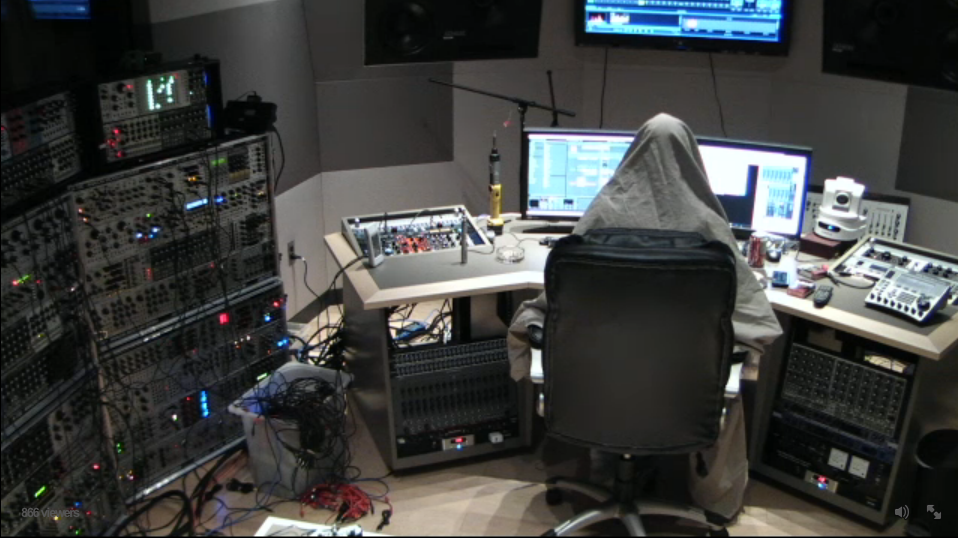 It seemed that, before the end of 2013, ghost producing within electronic dance music was acknowledged but not talked about. Hinted at, yes, but no artist directly came out and said, “Yes, I have used ghost producers,” or “I have a team behind me. Did you think I was a one-man show?”
It seemed that, before the end of 2013, ghost producing within electronic dance music was acknowledged but not talked about. Hinted at, yes, but no artist directly came out and said, “Yes, I have used ghost producers,” or “I have a team behind me. Did you think I was a one-man show?”
A few things changed over the past two years: well-known artists admit their start or work as ghost producers; DJs and producers reveal they’ve used some ghost production; and established, credible performers have started calling out those who bought their dance music careers.
In a sense, much of the change dates back to a DJ Mag 60-second interview with Martin Garrix. Allegations of using ghost producers began nearly immediately after “Animals” came out in 2013, with some publications calling the track a collaboration between Hardwell, GTA, and Sidney Sampson under a different name. Being an upstart from nowhere (or so it seemed), Garrix looked like an easy target, and took to multiple interviews and a video showing how he created “Animals” to defend himself.
But Garrix’s DJ Mag interview went beyond the song and dance of, “I did it all myself! Seriously, you guys. Can’t a young guy be rich and famous?” and instead revealed two industry bombshells: One, he started as a ghost producer for Spinnin’ Records before making his hit, and two, it seems to be a regular practice for the Beatport 100-dominating label to use ghost producers.
“I made a ghost production for somebody else – I can’t tell you which track I made – but this track got signed to Spinnin’ Records and became really big,” he told the magazine. “They found out that I made it, and so they invited me to their office and I played them my other stuff – and we signed.”
However, Garrix appeared to have two goals with this interview: One, reveal he’s a real producer who “paid his dues” working behind the scenes and doing wedding and small club gigs before becoming the name he is today, and two, to show that this pathway is how an up-and-coming producer finds work. So far, Spinnin’ hasn’t challenged what Garrix said, and the “Animals” producer keeps a consistent narrative, going through the same story in a January 2015 BBC Radio 1 interview.
Garrix’s statements compound to other artists saying they’ve ghost-produced for Spinnin’ before, or started with a similar path: underground darling Maceo Plex, Hardwell, and Dirtcaps. The latter of these three got into more detail about the practice with Complex last year, revealing that, like Garrix, they initially struck up a relationship with Spinnin’ through this approach.
“I make a track for a big guy and the big guy says you get a fee plus a big stage on a festival,” said member Max. Almost as if to soften the blow of not getting credit for your work, he followed that with, “We always get half of the publishing, plus retaining the master rights… and the fee that comes with producing as well.”
Later on, he explained that older, more established artists need the help, and that’s what ghost producers do.
This acknowledgement, on the other hand, is something that can be interpreted from two angles. One, producers can’t “do it all” all the time. It doesn’t seem feasible for one to spend so much time on the road – some DJ/producers like Avicii have been known to do more than 300 gigs per year – and to continue putting out music at regular intervals, be it producing a pop star, remixing, or making originals.
Yet, dance music, from the underground through the mainstream, appears to thrive on the assumption that a producer can do it all. In this scenario, he would be creating all of the instrumentation (not from plugins – that’s cheating), writing all the lyrics to the songs, doing the sound engineering, and always putting together sets for club appearances, festival gigs, and radio shows that are always original, with no repeated tracks.
So, What Now?
With artists coming forward, it’s time to distinguish what a big-name producer does, and who’s helping out. White River Rafting compiled a list of studio helpers for major producers and DJs, all for giving these “behind the scenes” guys the credit they deserve.
But the list brings forth another issue with ghost-producing: Some in the studio get credit, while others like Dennis Reijers (of Tiesto and Tiesto side project Allure) and Christian Hirt (EDX) don’t.
In some cases, realizing an artist didn’t do it all is broken down once you read the liner notes for an album. In other instances, these bigger names indicate that assistance of some kind is there: Tiesto, based on an Instagram post, has his team, while Mat Zo said he has a ghost-mixer for his online radio shows.
Especially with dance music producers having bigger careers now than they did 10 years ago, having a team assisting with minor to medium-level tasks starts to make sense. But there’s a large gray area between having a sound engineer and a songwriter in your court, and having an entire team of producers create your career. At that point, it’s practically Britney Spears-level miming.
And within dance music career, allegations of being “just a face” didn’t disappear with Eurodance. While DJing atrocities like Paris Hilton can be waved on, the same notion of “How did such quick success happen to a newcomer?” follows around younger producers.
Seth Troxler aimed at Team Avicii’s jugular at the International Dance Music Summit, while Nicky Romero, in a Fuse.tv interview, indirectly seems to go after Danny Avila.
This could be a case of the pot calling the kettle black. After all, Nicky Romero falls on the edge of being a producer prodigy, and came up as a collaborator on tracks with David Guetta, Fedde Le Grand, and Avicii. Yet, what sets Romero apart is the fact that you can find his rougher, earlier Spinnin’ tracks (pre-“Generation 303” material) out there that shows he’s experimenting, if not faltering a bit, to find his niche in the Dirty Dutch world. Later, his career trajectory has taken him not just through hit singles and a successful record label but through creating an orchestral score – how many mainstream EDM producers have done that before the age of 30?
By contrast, Danny Avila, with admitted connections to the Ibiza club world, came out of nowhere in 2013 – no early tracks, nothing semi-unpolished, no interviews about starting as a ghost producer for Spinnin’. Others have accused him of using his connections and father’s money to buy a dance music career, likely built on the labor of ghost producers.
“We spend so much time and effort making the sounds, making arrangements, finding the chords and everything and you just send an email saying, ‘I’m gonna pay you a certain amount of money and I wanna have a song,’” Romero told Fuse.tv. “It’s just insane. It happens all the time. There are rich dads in this world that just pay for their sons and pay producers tons of money to have music out there and make them a big artist. But an artist is created by creativity and originality and discipline. It is not created by money.”
The ultimate takeaway here, is, ultimately, dance music producers and their labels need to be more honest about what goes on behind the scenes. The illusion of not doing everything doesn’t make the producer a “puppet” of studio hands – unless that ghost producer is doing all the work, like Maarten Vorwerk has claimed to do for Dimitri Vegas and Like Mike, Borgeous, and DVBBS.
Hardwell seemed to articulate it best in an Inthemix interview: “I’m fine with ghost-producing, but then again I don’t like it when…if you’re not producing your own tracks then just be honest, say ‘you know what, I’m a good DJ but I can’t produce my own songs, I got help,’ I think that’s fair. Because honestly, you can hear it, because every single track sounds totally different. Everybody in the scene knows who works with ghost-producers.”




